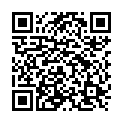|
|
|
| Module code: BITM-281 |
|
|
4SU (4 hours per week) |
|
5 |
| Semester: 2 |
| Mandatory course: yes |
Language of instruction:
German |
Assessment:
Term paper with presentation + exam (1:1; Exam 60 minutes; Can be repeated annually)
[updated 14.11.2022]
|
BITM-281 (P440-0037, P440-0038) International Tourism-Management, Bachelor, ASPO 01.10.2020
, semester 2, mandatory course
|
60 class hours (= 45 clock hours) over a 15-week period.
The total student study time is 150 hours (equivalent to 5 ECTS credits).
There are therefore 105 hours available for class preparation and follow-up work and exam preparation.
|
Recommended prerequisites (modules):
BITM-112 Principles of the Tourism Sector
[updated 06.03.2020]
|
Recommended as prerequisite for:
BITM-320 Management in the Tourism Industry
BITM-531 Digitalization in Tourism
[updated 17.10.2022]
|
Module coordinator:
Prof. Dr. Ralf Rockenbauch |
Lecturer:
Lehrbeauftragte
Marcus Bauer
Dozierende des Studiengangs
Dipl.-Sportwiss. Susanne Seeliger
[updated 06.03.2020]
|
Learning outcomes:
After successfully completing this module students will be able to:
- understand and apply the techniques of scientific work
- work and acquire new knowledge independently
- create PowerPoint presentations
- work with Office Management and prepare for examinations efficiently
Business Skills:
After successfully completing this module students will:
- be familiar with different communication tools/models
- be able to name and explain the central characteristics of communication
- be able to analyze, actively shape and manage interpersonal communication
- be familiar with the advantages and disadvantages of different presentation styles and techniques through their own experience
- have internalized different aspects of moderation
- be able to distinguish the particularities of communication and presentation situations in the business field from those of other fields and know how to deal with them appropriately in order to achieve their goals.
[updated 14.11.2022]
|
Module content:
1. Working and Learning Techniques / Scientific Work
- Scientific research in the library and on the Internet
- Pyramid thinking and goal-oriented communication
- Structure of a scientific paper
- Modern presentation techniques
- Presentations with PowerPoint/Office Management
- Organizing your studies
- Time management
- Learning techniques
- Preparing for exams
- Job interviews
2. Business Skills
- Principles of communication
- Communication theories
- Communication in a business environment
- Presentation techniques
- Facilitation and mediation
- Rhetoric basics
- Convincing argumentation
- Speaking freely
- Body language
3. Office Management
- Presentation program: creating and giving a presentation, formatting
and layout, graphics and other objects, creating and reusing templates
- Word processing: business letters, structuring and formatting large
documents, tables and graphics, quotes and footnotes, directories
- Spreadsheets: the basics, formulas, functions, date and time,
diagrams, processing techniques, consolidation, pivot tables
[updated 14.11.2022]
|
Teaching methods/Media:
Interactive course with a strong degree of student participation, discussions, partner and group work, exercises and role playing, presentations, talks, use of video and camera technology.
Use of the PC lab and case studies/examples on the PC; individual and group work on the PC
[updated 14.11.2022]
|
Recommended or required reading:
Theisen, M. R.: Wissenschaftliches Arbeiten, aktuellste Auflage, München
Rossig, W. und Pätsch, J.: Wissenschaftliches Arbeiten, aktuellste Auflage, Hamburg
Metzger, Ch.: Lern- und Arbeitsstrategien, aktuellste Auflage, Aarau/Schweiz
Metzig, W. und Schuster, M.: Lernen zu lernen, aktuellste Auflage, Berlin, Heidelberg
Hartmann, M., Funk, R. und Nietmann, H.: Präsentieren, aktuellste Auflage, Weinheim, Basel
Lemmermann, H. Praxisbuch Rhetorik, latest edition, mgv Verlag
Molcho, S., Alles über Körpersprache, latest edition, Mosaik Verlag
Thiele, A., Argumentieren unter Stress, latest edition, dtv
Vogt, G., Erfolgreiche Rhetorik, latest edition, Oldenbourg-Verlag
Bossert, T.: PowerPoint für Windows – Grundlagen, Herdt-Verlag, Bodenheim
Von Braunschweig, C., Spieß, S., Stulle, K.: Word 2010 für Windows – Grundlagen, Herdt-Verlag, Bodenheim, 2010.
Wies, P.: Excel für Windows – Grundlagen, Herdt-Verlag, Bodenheim
Wies, P.: Excel für Windows – Fortgeschrittene Techniken, Herdt-Verlag
Business Skills:
Seibert, J. W.: Visualisieren, Präsentieren, Moderieren, erw. 30. Aufl., Gabal 2012
Molcho, Samy: Das ABC der Körpersprache, Ariston 2011.
Ebel, H.F. / Bliefert, C. / Kellersohn, A.: Erfolgreich kommunizieren – Ein Leitfaden für Ingenieure, 1. Auflage, Wiley VCH Verlag 2000.
Meinholz, Heinz et al.: Führungskraft Ingenieur, Teubner 2010.
Tenopir; Carol, Communication Patterns of Engineers; John Wiley & Sons 2004.
Watzlawick, P., et al., Menschliche Kommunikation, 12. Auflage, Huber 2011.
Schulz von Thun, Friedemann et al., Miteinander reden - Kommunikationspsychologie für Führungskräfte; ROWOHLT 2008.
Hackenberg, W., et.al.: Key Message. Business Presentations with Structure, Haufe 2011.
Bohinc, T.: Kommunikation im Projekt, Gabal 2014.
Bohinc, T.: Führung im Projekt, Springer Gabler 2012.
Henkel, P.: Besser wirken, mehr bewirken! So überzeugen Sie Kunden und Geschäftspartner mit professionellen Präsentationen, Springer Gabler 2014.
Birkenbihl, V.F.: Kommunikationstraining. Zwischenmenschliche Beziehungen erfolgreich gestalten. mvg Verlag 2017.
[updated 14.11.2022]
|


